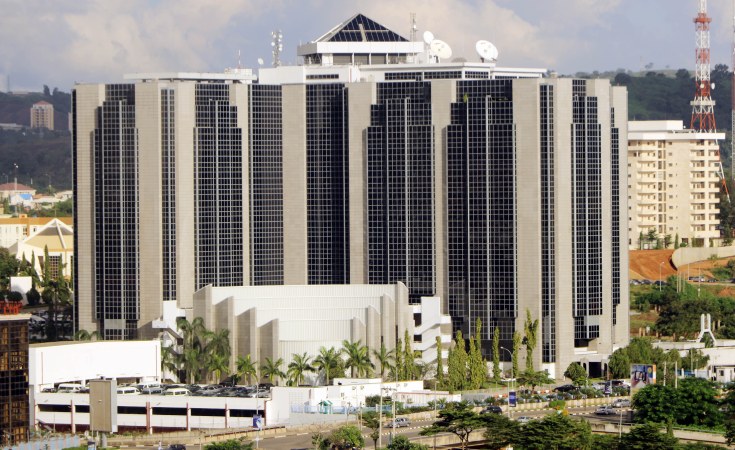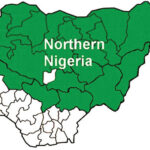The power firms, mostly private entities, may have gotten about N1.5 trillion funds from the Central Bank of Nigeria (CBN) in the past seven years, helping the sector stay afloat.
However, experts and power consumers are worried that the situation has not changed as electricity supply and its associated services continue to worsen.
- Senate rejecting E-transmission of results disgraceful — Chidoka
- Four cultists nabbed during supremacy battle in Ogun
Daily power generation has hovered between an average of 3,500 megawatts (MW) and barely 4,000MW in the past months. As of Saturday, the highest power generated was 4,823 megawatts (MW) while the lowest was 3,031MW, according to the Transmission Company of Nigeria (TCN) available daily record. This translates to at most 15 hours or less for consumers paying for 20 hours and even zero hours for some others paying for eight hours daily supply.
Analysis of the fourth-quarter economic report 2020 (4Q’2020) of CBN released recently, indicates that while the repayment process of these power sector-centric loans is running, the interventions were supposed to speed up power projects that could in turn boost the national power grid and end user experience.
The report shows that the Power and Aviation Intervention Fund (PAIF) is about N300 billion; then there is the Nigerian Electricity Market Stabilisation Facility (NEMSF) of N213bn to clear debts by the power operators and improve operation from 2015.
There is the N140bn Solar Connection Intervention Facility to boost off-grid electricity access through the Rural Electrification Agency (REA). CBN also injected another N600bn tariff shortfall intervention and a recent N120bn intervention for the ongoing National Mass Metering Programme (NMMP) across the 11 Distribution Companies (DisCos).
Experts and analysts in the power sector have lauded CBN for these interventions; however, they have flayed the power operators, especially the DisCos, for the little yield in power supply improvement. Others blame the Nigerian Electricity Regulatory Commission (NERC) for the regulatory lapses, poor tariff among other electricity market crises spanning seven years.
The latest CBN’s fourth quarter report has put the repayment of the loans at 30 percent just as the apex bank has escrowed the DisCos’ accounts to enable it recoup these loans.
Supporting this move, analysts at Templars, an economic analysis and law firm, noted that while CBN is not a sector regulator, in view of its exposure to the sector through its various interventions, it was critical for the apex bank to influence policies that would address the general electricity market imbalance.
The legal firm’s Partner, Dayo Okusami, and Senior Associate, Moses Pila, in a document, said: “Gas prices and other elements of the Capital Expenditure (CAPEX) for the power sector participants are dollar-denominated. With the electricity tariffs in Naira, there is a perennial mismatch between revenue earnings and the CAPEX inputs.”
Explaining the main reason for the cash crunch in the electricity market, they stated that while the exchange rate in the tariff is usually fixed, the fluctuations in the general foreign exchange market make it challenging for the players to procure foreign exchange at the tariff-template rate.
Although CBN had provided N702bn capitalisation to the Nigerian Bulk Electricity Trading Plc (NBET) in 2018 to save the Generation Companies (GenCos) from collapse as they could no longer pay for gas, Templars’ officials have said the current situation would require CBN to repeat the same intervention.
“This will in turn enable the GenCos to meet their payment obligations to their gas suppliers. The CBN may also choose to provide a special foreign exchange dispensation to the power sector to mitigate the challenges.
“Another area that the CBN could actively influence is the area of collection leakages at the DisCo level. Even where NBET has not been able to exert the required influence on the remittance level of the DisCos, the CBN can use its influence in the banking sector to act.”
Commenting on the avenues for saving the ailing power sector, Habeeb Jaiyeola, an economist with PricewaterhouseCoopers (PWC) insisted that the CBN intervention remains a positive tool to improve the power sector. He however noted that there should be stronger strategies to ensure prompt repayment by the operators so that CBN can have funds to intervene in other sectors of the economy.
On his part, President, Nigerian Consumer Protection Network (NCPN), Kunle Kola Olubiyo, said although the operators had not delivered the service improvement to consumers, he noted support from CBN may help cushion the present liquidity crisis.
Olubiyo however said the interventions schemes to the power sector should be reviewed for the entire value chain to yield better results in the improvement of electricity supply.

 Join Daily Trust WhatsApp Community For Quick Access To News and Happenings Around You.
Join Daily Trust WhatsApp Community For Quick Access To News and Happenings Around You.


